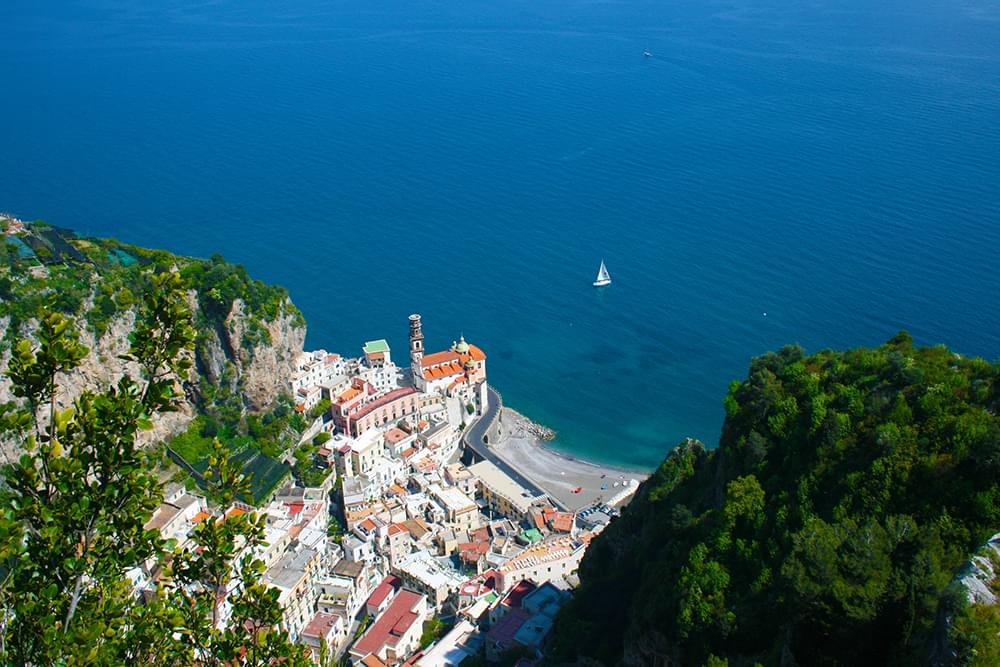
The province of Salerno, located in southern Campania, is one of Italy’s most diverse and rewarding destinations. It offers an extraordinary mix of coastline, history, nature, and culture.
Stretching from the world-famous Amalfi Coast to the wild landscapes of the Cilento region, this province is a treasure trove of scenic beauty and deeply rooted local traditions.

One of the crown jewels of the province is the Amalfi Coast, a UNESCO World Heritage Site known worldwide for its dramatic cliffs, colorful towns, and azure sea. It includes iconic locations such as Amalfi, Positano, and Ravello.
Each town has its own personality, Positano with its vertical streets and chic boutiques, Amalfi with its cathedral and maritime past, and Ravello offering gardens and classical music festivals with panoramic views.
To the south lies the Cilento region, often overshadowed by the Amalfi Coast but equally captivating. This vast area of hills, forests, and sea is protected by the Cilento and Vallo di Diano National Park.
Cilento is home to some of the best beaches in Campania, medieval villages untouched by mass tourism, and ancient ruins, including the extraordinary Greek temples of Paestum and the archaeological site of Velia.
Salerno province boasts some of the best-preserved ancient Greek architecture in the world. The archaeological park of Paestum features three massive Doric temples dating back to the 6th century BC.
Nearby, the site of Velia (once Elea) was a center of philosophy and home to the Eleatic school. These ruins, surrounded by countryside and sea, are a must-visit for lovers of history and classical civilization.
While the coast draws the most attention, the mountainous interior of Salerno province offers equally compelling experiences. The Alburni and Monti Picentini ranges are ideal for hiking, exploring caves, and enjoying untouched landscapes.
Villages like Teggiano, Sanza, and Castelcivita offer a taste of traditional Campania life, with stone houses, hilltop castles, and festivals that reveal deep ties to the land and its history.
Salerno province is a place where traditions live on through generations. From handmade ceramics in Vietri sul Mare to intricate lace and woodwork in mountain villages, craftsmanship is everywhere.
Festivals, religious processions, and folk celebrations are part of everyday life in many towns. These moments offer visitors a chance to feel the pulse of a culture that values its roots and regional identity.
The culinary landscape of Salerno province reflects its geography, coastal flavors blend with inland simplicity. Dishes are made from fresh, local ingredients, often passed down through generations.
From seafood pasta along the coast to mountain cheeses, homemade breads, and Cilento olive oil, the food is genuine and hearty. Don’t miss specialties like mozzarella di bufala, anchovies from Cetara, and white figs of Cilento.
The region is dotted with religious architecture and sacred places that reflect centuries of devotion. From medieval monasteries to hidden chapels in the mountains, these sites are often breathtaking in both art and atmosphere.
Highlights include the Certosa di Padula, one of the largest Carthusian monasteries in Europe, and the Romanesque churches of Salerno city. Many of these places are quiet, spiritual retreats far from the tourist path.
Salerno province is well connected by rail and road. The city of Salerno has a major train station and port, making it a great base for exploring both the Amalfi Coast and Cilento.
Spring and autumn are ideal times to visit, with mild weather and fewer crowds. Summer brings beach life and lively festivals, while winter offers quiet exploration and cultural depth.
The province of Salerno is a place of striking contrasts, rugged mountains and glittering seas, ancient temples and modern towns, quiet villages and lively festivals. It is a land of exploration and emotion.
For travelers seeking a full and genuine experience of southern Italy, Salerno offers it all: beauty, culture, nature, and humanity, wrapped into one unforgettable journey.



